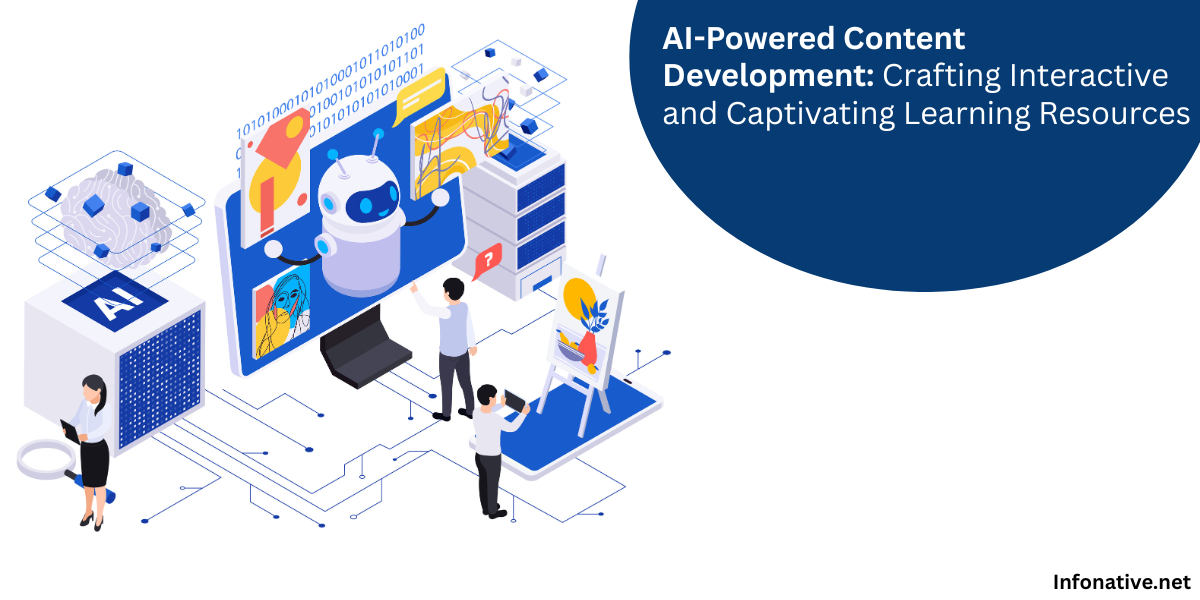Effective and engaging learning solutions have become the need of the hour for the workforce in order to keep pace with the rapidly changing world. Learning and development play a crucial role in helping organizations successfully navigate difficult challenges and stay ahead in the race. Custom eLearning development is a critical and transformative tool that can unlock the full potential of employees. When eLearning experiences are tailored to suit the learners, mapping with specific objectives and contexts, a whole world of opportunities for innovation opens up, ensuring efficiency and positive impact.
The Transformation of Learning: From Conventional to Custom eLearning
Conventional classroom learning methods and printed materials have long been the cornerstone of organizational learning and development initiatives. These methods have their benefits. However, they fall short when it comes to addressing the diverse needs and preferences of modern learners. Today, information is readily accessible, and attention spans are shorter than ever, making it inevitable for organizations to embrace dynamic, interactive, and engaging approaches to learning.
This need gave birth to custom eLearning development. While off-the-shelf solutions offer one-size-fits-all content and lack flexibility, custom eLearning development allows organizations to create tailored learning experiences that are perfectly aligned with their unique goals, values, and culture. Whether the requirement is for onboarding new employees, upskilling existing staff, or addressing specific training needs, custom eLearning development offers a level of customization and personalization that traditional methods cannot match.
Engagement: The Key to Effective Learning
At the heart of custom eLearning development lies the concept of engagement. Research has consistently shown that engaged learners are more motivated, retain information better, and perform more effectively than their disengaged counterparts. Custom eLearning experiences are designed with engagement in mind, leveraging interactive elements, multimedia content, gamification techniques, and scenario-based learning to create immersive environments that capture learners' attention and spark their curiosity.
From interactive simulations that simulate real-world scenarios to branching scenarios that allow learners to explore different outcomes based on their decisions, custom eLearning experiences offer a level of interactivity and engagement that traditional methods cannot replicate. By making learning enjoyable and relevant, custom eLearning development ensures that learners remain invested in their learning journey and are more likely to apply their newfound knowledge and skills in real-world situations.
Flexibility: Adapting to Changing Needs
In today's fast-paced business environment, agility and adaptability are essential for success. Custom eLearning development provides organizations with the flexibility they need to respond quickly to changing needs and circumstances. Whether it's updating content to reflect new regulations, incorporating feedback from learners, or scaling training programs to accommodate growth, custom development ensures that eLearning solutions remain relevant and effective over time.
Unlike off-the-shelf solutions, which may become outdated or obsolete as new information becomes available, custom eLearning experiences can be easily updated and modified to reflect the latest developments in the field. This level of flexibility ensures that organizations can stay ahead of the curve and provide learners with the most up-to-date and relevant training content.
Measurement: Driving Continuous Improvement
Effective learning solutions are not only engaging and relevant but also measurable and results-driven. Custom eLearning development enables organizations to incorporate robust analytics and tracking mechanisms into their training programs, allowing them to monitor learner progress, identify areas for improvement, and measure the impact of training initiatives on business outcomes.
By leveraging data-driven insights, organizations can continuously refine and optimize their eLearning experiences, ensuring maximum effectiveness and return on investment. Whether it's tracking completion rates, assessing quiz scores, or analyzing learner feedback, custom eLearning development provides organizations with the tools they need to measure the success of their training programs and drive continuous improvement.
Accessibility: Empowering All Learners
Inclusive learning experiences are essential for fostering a culture of diversity and belonging within organizations. Custom eLearning development enables organizations to create accessible learning solutions that accommodate the diverse needs and preferences of all learners, including those with disabilities or special requirements.
From providing alternative formats for content delivery to ensuring compatibility with assistive technologies, customization ensures that no learner is left behind and that everyone has the opportunity to unlock their full potential. By embracing accessibility principles and designing eLearning experiences with inclusivity in mind, organizations can create a more equitable and empowering learning environment for all.
Conclusion: Embracing the Future of Learning
As organizations continue to navigate an increasingly complex and competitive business landscape, the importance of effective learning and development initiatives cannot be overstated. Custom eLearning development offers organizations the tools they need to unlock the full potential of their employees and learners, providing tailored learning experiences that engage, motivate, and empower individuals to succeed.
From enhancing engagement and flexibility to driving continuous improvement and fostering inclusivity, custom eLearning development offers a host of benefits that traditional learning methods simply cannot match. By embracing customization and leveraging the power of eLearning, organizations can stay ahead of the curve, adapt to changing needs, and empower their workforce to thrive in today's digital age.




